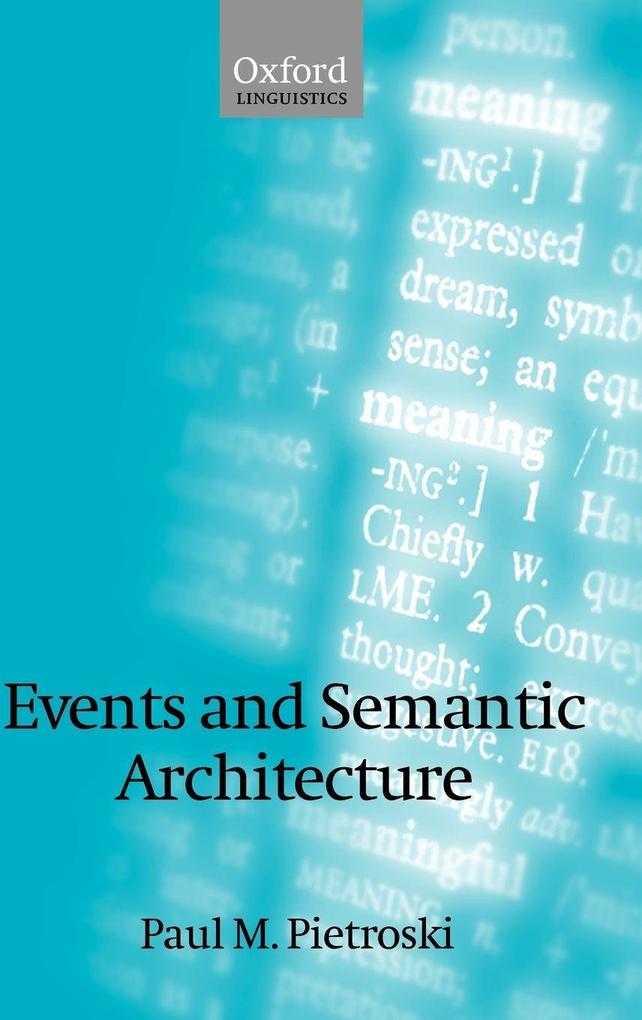
Zustellung: Fr, 30.05. - Mi, 04.06.
Versand in 2 Wochen
VersandkostenfreiThis book presents a unified theory of how grammar relates to meaning. Intended for linguists and philosophers it provides fresh ways of thinking about semantic generalizations that may reflect innately determined aspects of human languages.
In this study of how syntax relates to meaning, Paul Pietroski defends the hyposthesis that combining expressions corresponds to predicate-conjunction and not function-application. Chapters cover a range of constructions involving causative and serial verbs, plural noun-phrases, and complementizer phrases. The book represents a lucid contribution to the field by a leader of the new generation of philosopher-linguists.
Inhaltsverzeichnis
- 1: Elementary Cases
- 2: Quantification and Plurality
- 3: Causal Verbs and Sentential Complements
- Bibliography
- Index
Produktdetails
Erscheinungsdatum
13. Januar 2005
Sprache
englisch
Seitenanzahl
280
Autor/Autorin
Paul M Pietroski, P M Pietroski
Verlag/Hersteller
Produktart
gebunden
Gewicht
562 g
Größe (L/B/H)
234/156/18 mm
ISBN
9780199244300
Pressestimmen
Pietroski's book offers a fascinating view of how natural language semantics may be organised. . . His thesis is a no doubt a bold one, but also highly interesting. We can only look forward with excitment to the forthcoming book. Terje Lohndal, Oslo Studies in Language
Bewertungen
0 Bewertungen
Es wurden noch keine Bewertungen abgegeben. Schreiben Sie die erste Bewertung zu "Events and Semantic Architecture" und helfen Sie damit anderen bei der Kaufentscheidung.







